Water and Health Projects
In rural Africa, many women have to walk well over an hour just to fetch water—an exhausting and often dangerous chore that robs them of the chance to learn and work. Dirty water, inadequate sanitation, and poor hygiene habits also play a major role in child mortality. We’ve built life-saving, essential infrastructure for the community at large. Each year, our 31 wells supply fresh, clean water to over 36,000 people, reducing disease and illness.
Support this programProgram Highlight
We’re partnering with the foundations and individual donors to build wells, toilets, and hand basins—all of which are vital to the health of individuals within the community.
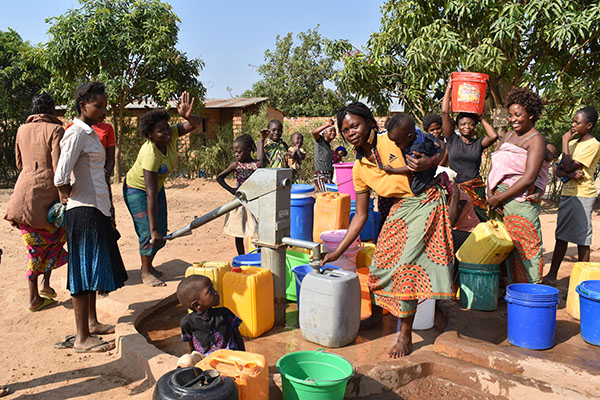
At Malaika, we believe that clean water is not only a fundamental right, but essential to creating a healthier community.
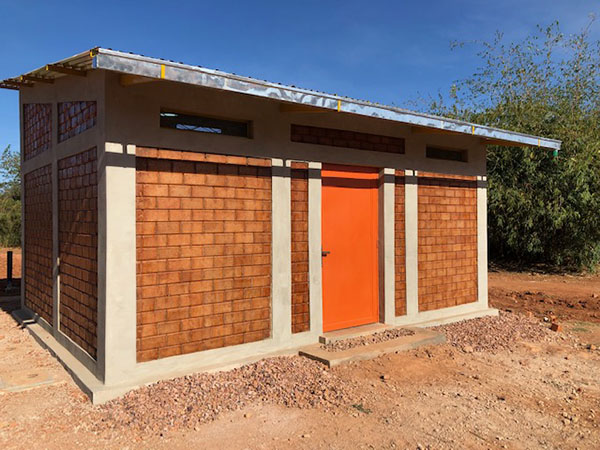
Our recently-built toilets and hand basins improve hygiene and sanitation for the wider community.

Our first solar well was drilled in 2019 and makes retrieving water so much easier.
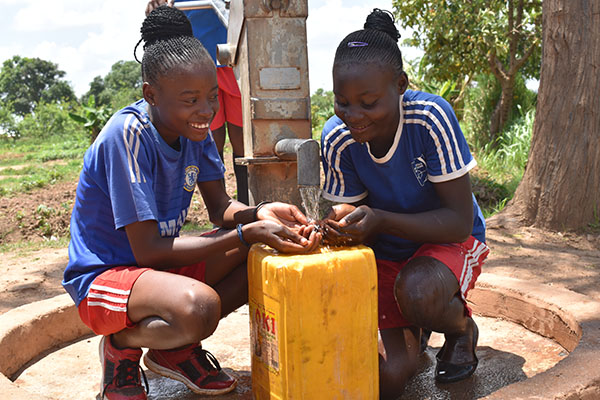
Youth learn about the importance of uncontaminated water in ensuring healthier living.

Clean water isn’t just for hand washing and drinking! It’s important for our food to be clean, too.
Program Highlight
More than 400,000 people die from malaria each year, worldwide according to the WHO. We’ve distributed over 11,000 mosquito nets to families across the Congo as part of our efforts to educate people around the importance of preventative measures in the fight against this deadly disease.
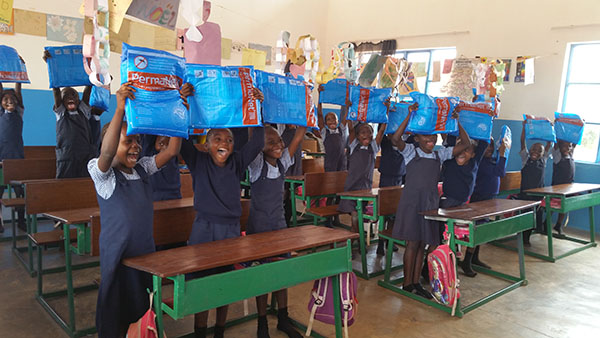
Here, our girls learn about the importance of mosquito nets in the classroom, before sparking much-needed conversations with members of the community.
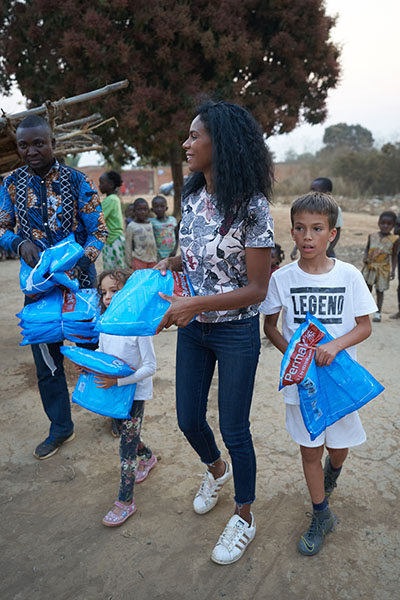
Educating around malaria prevention is critical to conquering this worldwide challenge. We conduct door-to-door surveys to assess knowledge and prevention methods.
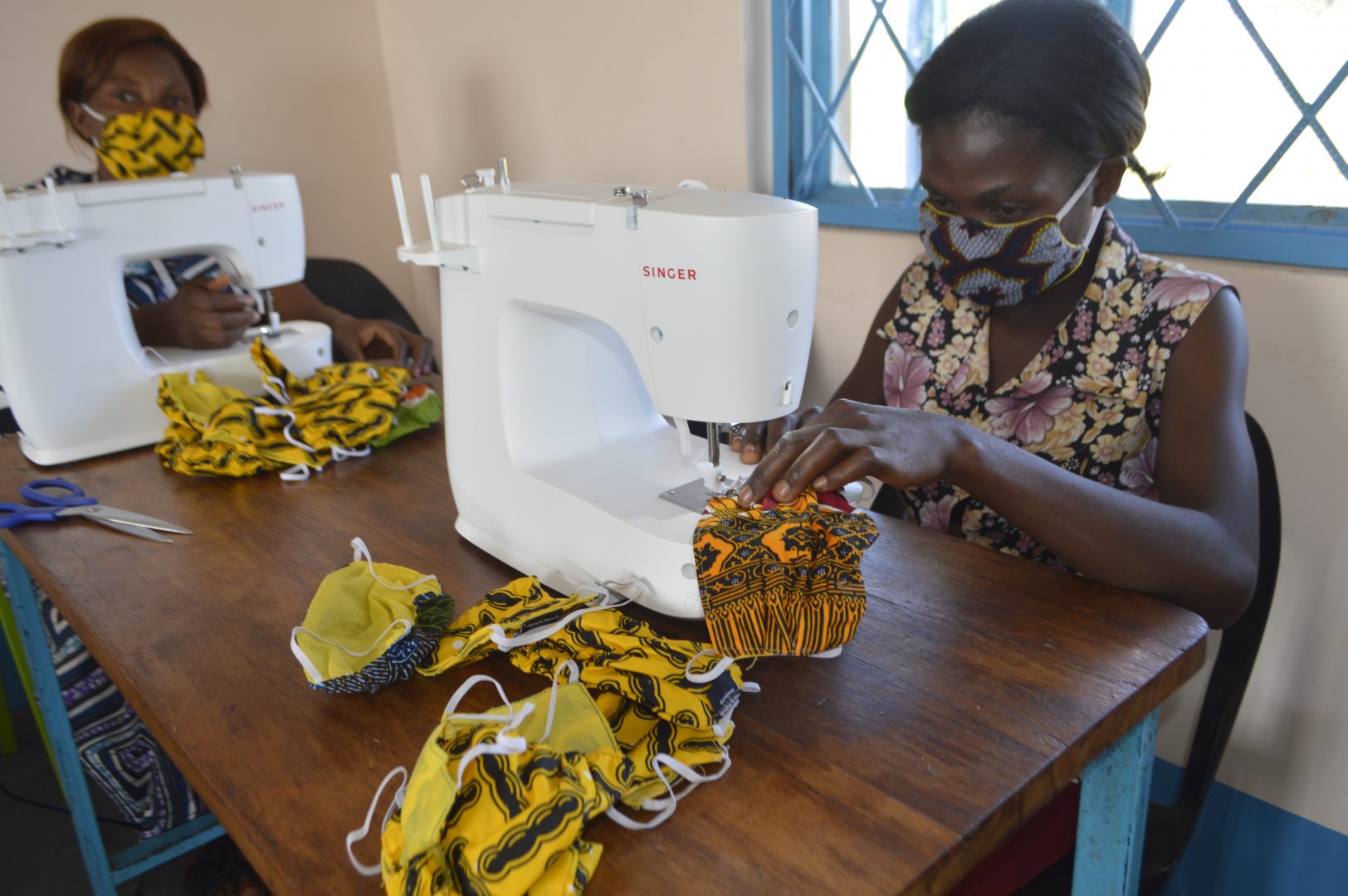
Mama Ya Mapendo members sew masks for community members to help reduce the spread of COVID-19.
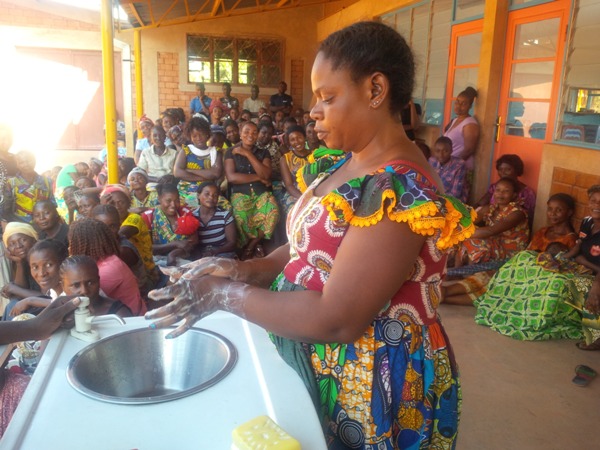
One of our teachers demonstrates how to properly wash your hands.
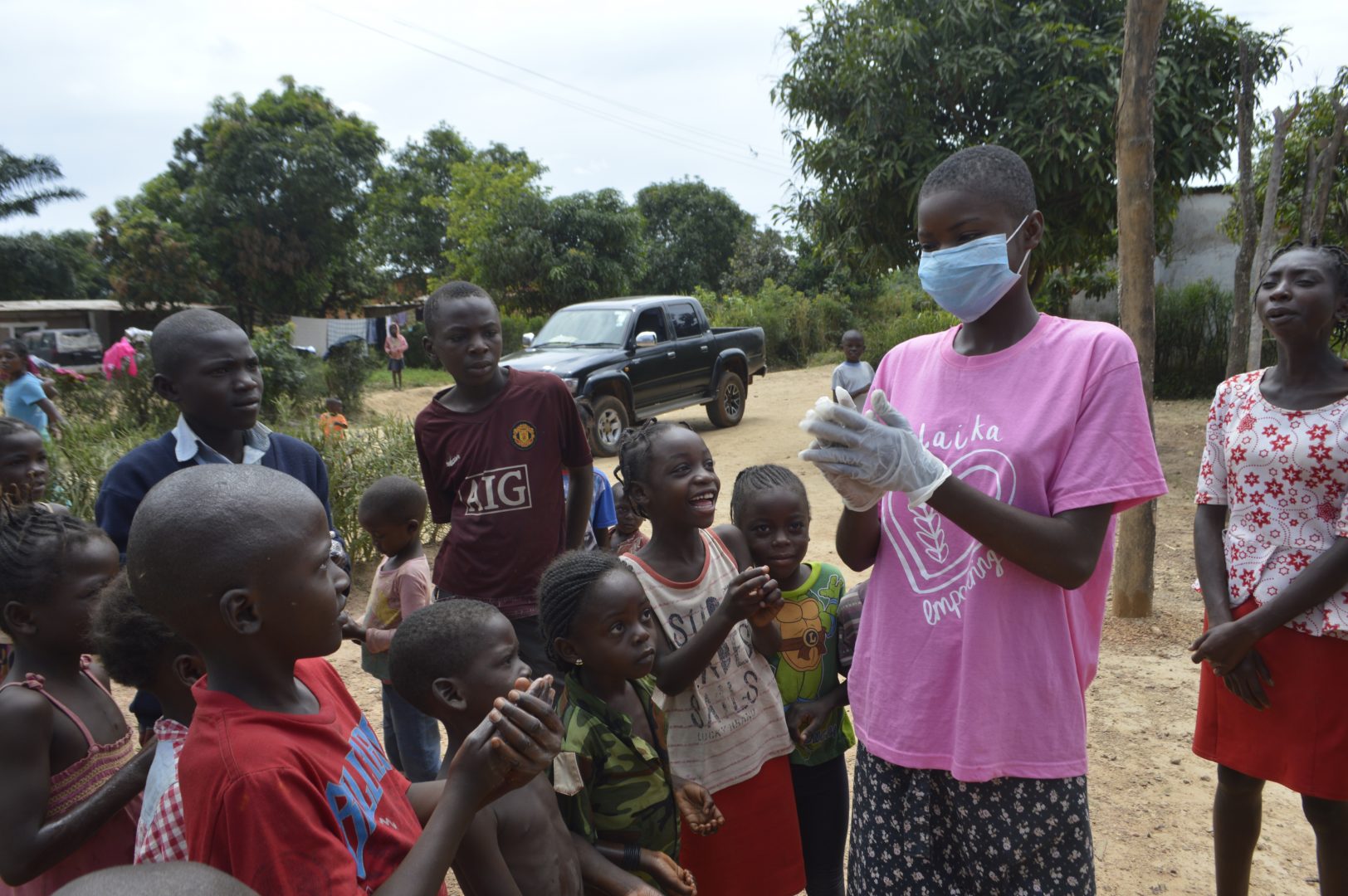
During the COVID-19 pandemic, our staff conduct outreach in the community, teaching prevention methods.
Program Highlight
Other initiatives include community outreach, health education and supplying free sanitary products for our students to break down the everyday stigma surrounding female health and ensure that girls stay in school when they start getting their period.
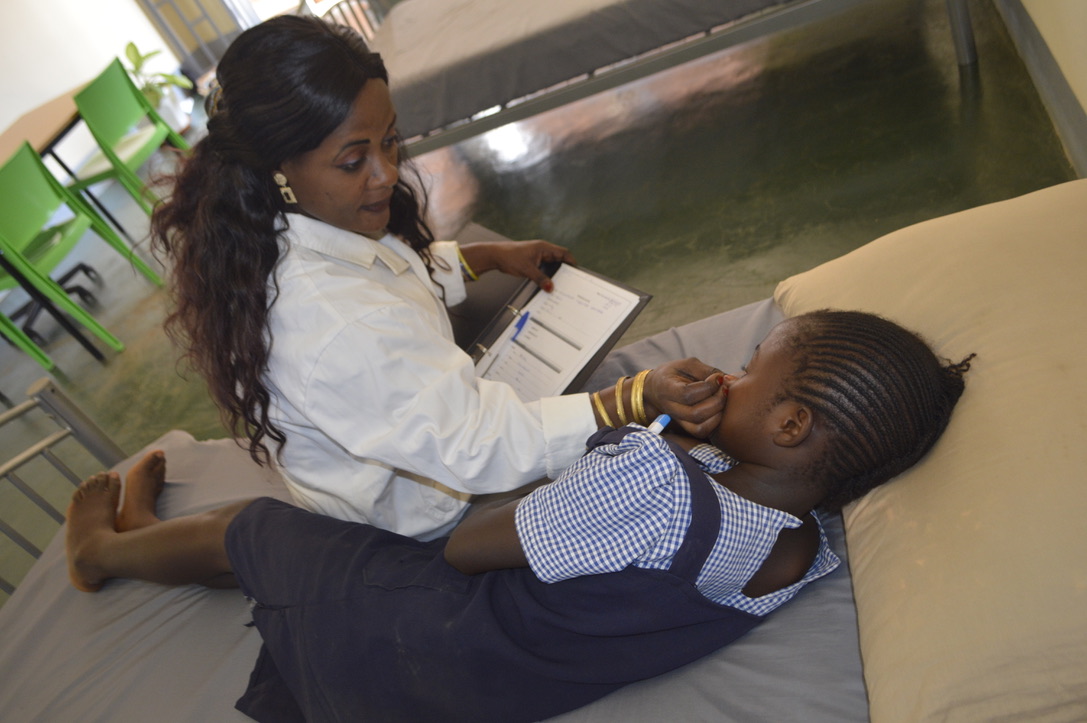
The student health center provides regular check-ups as well as a place for ill students to have a rest.
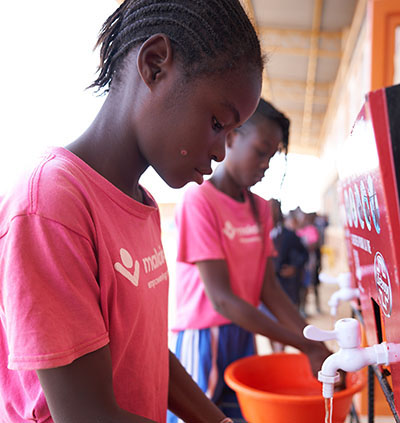
Preventing disease starts with hand washing. That’s why our hand basins are an integral addition to the village of Kalebuka.
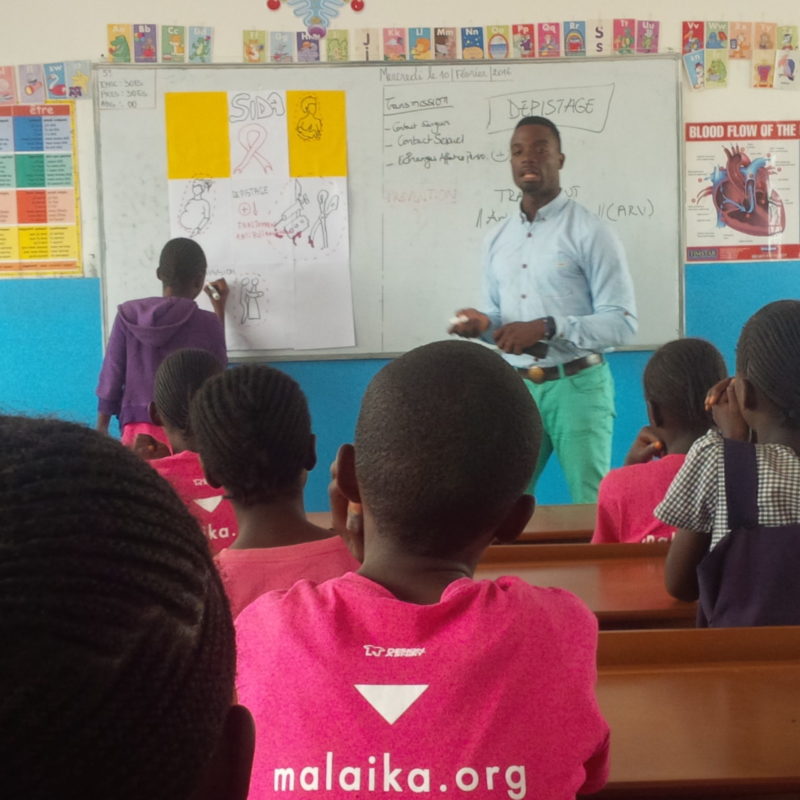
Classes at our community center share information on AIDS and other communicable diseases.
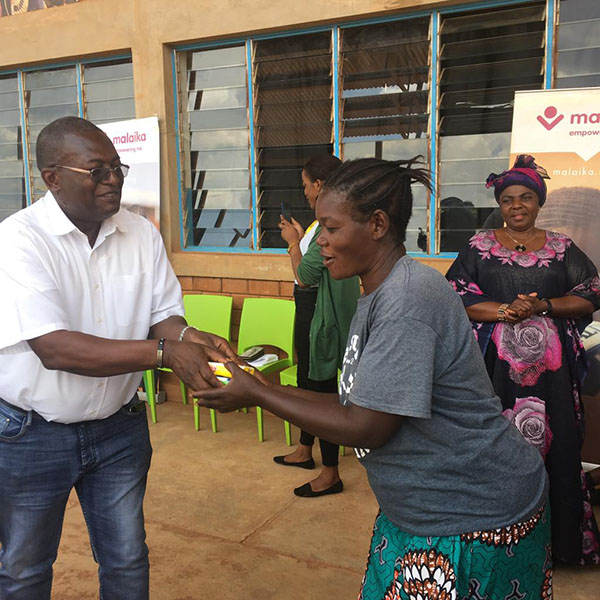
A local donor distributes hygiene products to a community member.

A staggering number of girls would not be able to attend school without the free supply of sanitary products.


School
Today, over 50 million girls in Sub-Saharan Africa are out of school. First opening its doors in 2011, the Malaika School provides a free primary and secondary education to 430 girls.

Community Center
Our Community Center, opened in 2013 in partnership with FIFA, provides a hub of learning for over 5,000 youth and adults each year.

Agriculture
A lack of information around nutrition is one of the key challenges facing communities around the world. At Malaika, we’re spreading knowledge, tools, and tips, and leading by example.
